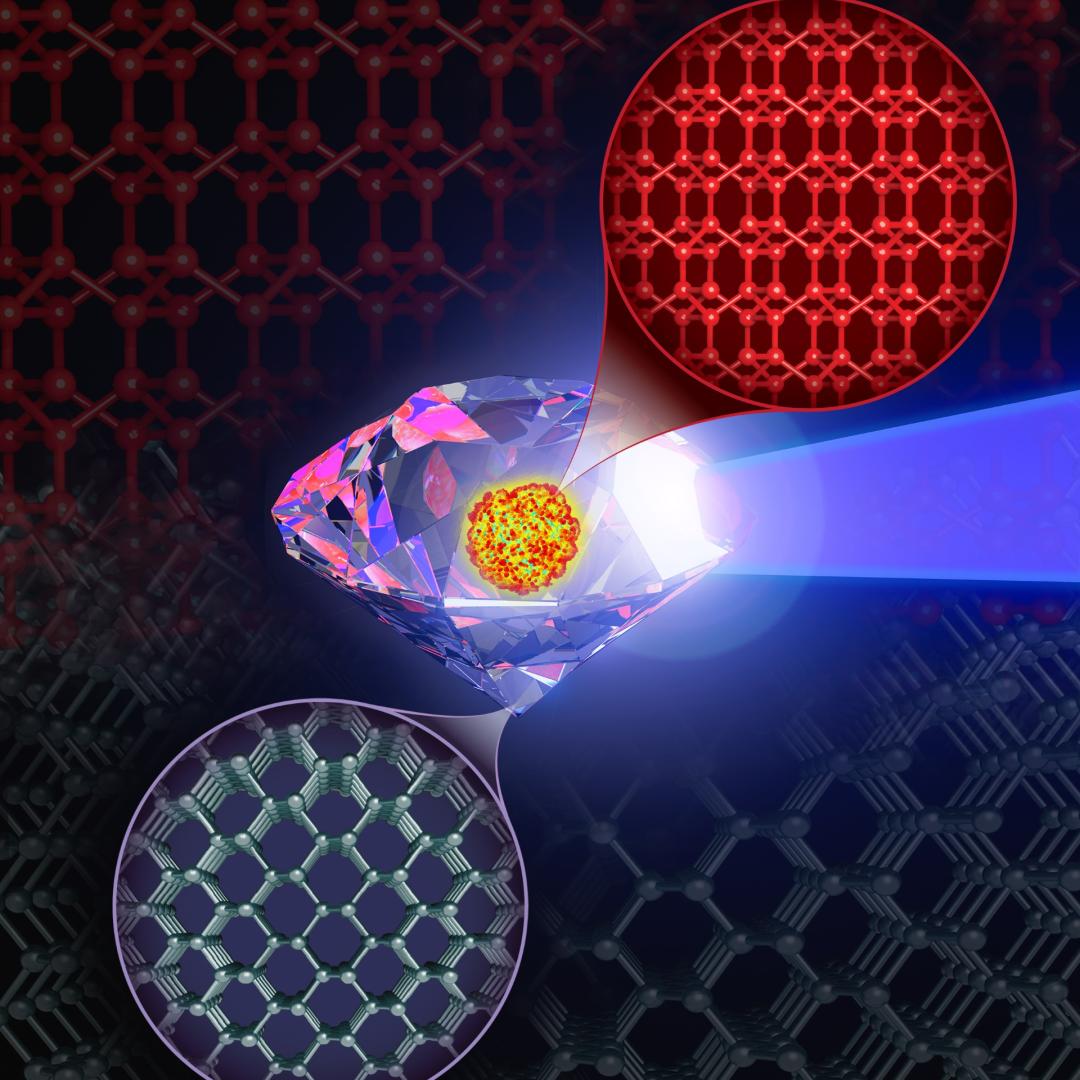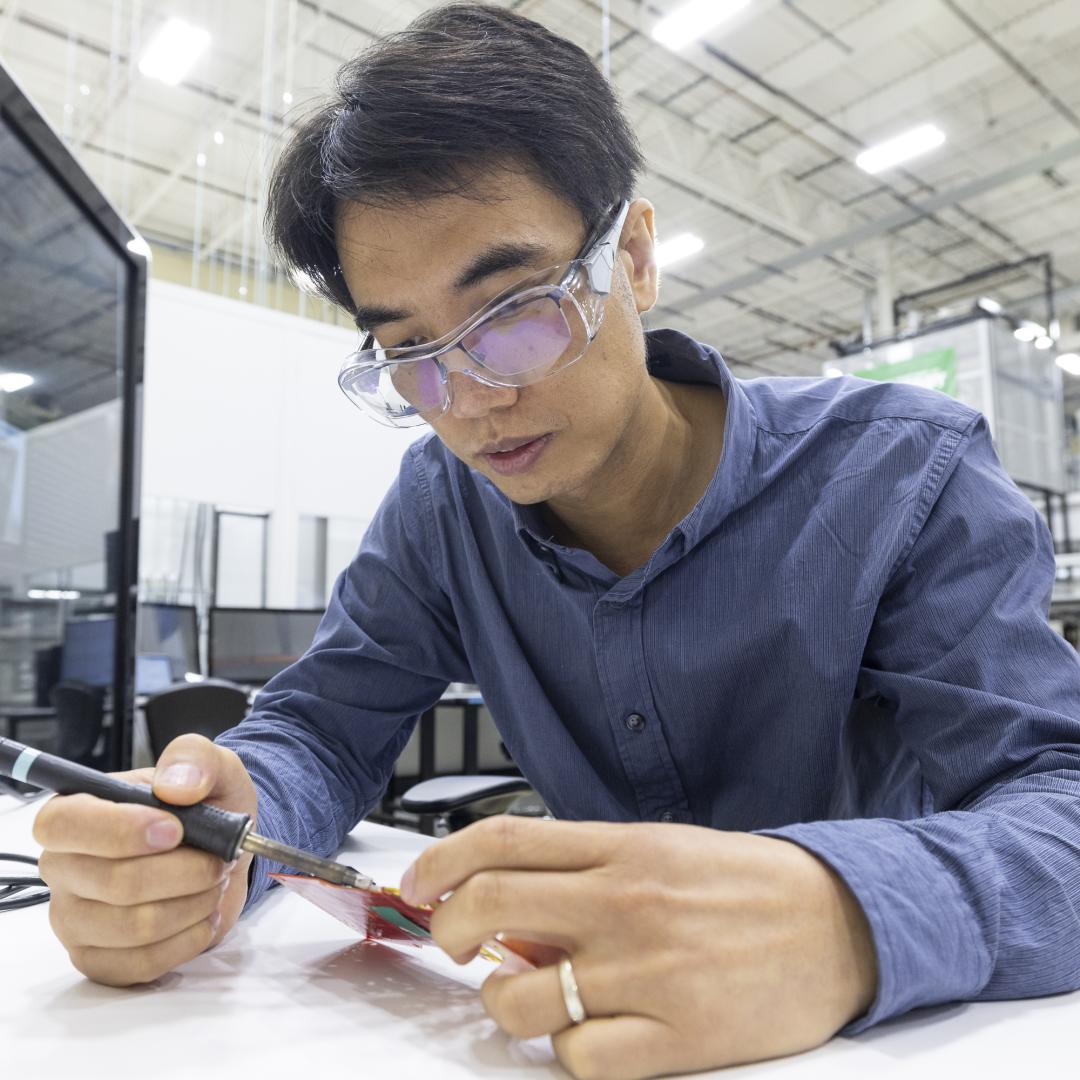
Filter News
Area of Research
News Topics
- (-) Clean Water (2)
- (-) Computer Science (26)
- (-) Environment (19)
- (-) Fusion (6)
- (-) Sustainable Energy (14)
- 3-D Printing/Advanced Manufacturing (18)
- Advanced Reactors (3)
- Artificial Intelligence (21)
- Big Data (8)
- Bioenergy (11)
- Biology (10)
- Biomedical (6)
- Biotechnology (4)
- Buildings (7)
- Chemical Sciences (7)
- Climate Change (8)
- Composites (4)
- Critical Materials (3)
- Decarbonization (12)
- Education (1)
- Emergency (1)
- Energy Storage (6)
- Exascale Computing (8)
- Fossil Energy (2)
- Frontier (7)
- Grid (7)
- High-Performance Computing (10)
- Isotopes (7)
- Machine Learning (6)
- Materials (10)
- Materials Science (13)
- Mathematics (3)
- Mercury (1)
- Microscopy (2)
- Nanotechnology (2)
- National Security (13)
- Net Zero (3)
- Neutron Science (10)
- Nuclear Energy (12)
- Partnerships (11)
- Physics (5)
- Polymers (1)
- Quantum Computing (9)
- Quantum Science (14)
- Security (2)
- Simulation (10)
- Space Exploration (4)
- Statistics (1)
- Summit (9)
- Transportation (6)
Media Contacts
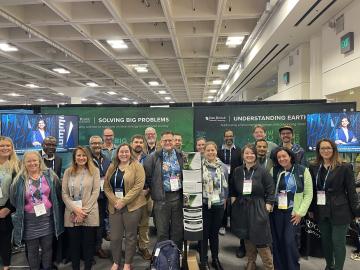
ORNL scientists and researchers attended the annual American Geophysical Union meeting and came away inspired for the year ahead in geospatial, earth and climate science.
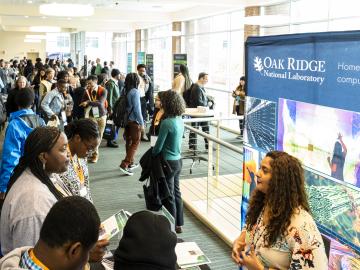
ORNL and the University of Tennessee, Knoxville, co-hosted the 2023 National Society of Black Physicists Annual Conference with the theme "Frontiers in Physics: From Quantum to Materials to the Cosmos.” As part of the three-day conference held near UT, attendees took a 30-mile trip to the ORNL campus for facility tours, science talks and workshops.
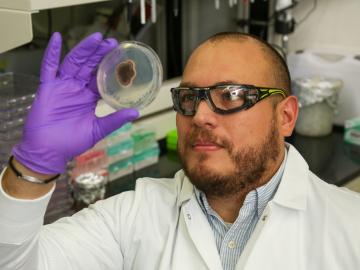
New computational framework speeds discovery of fungal metabolites, key to plant health and used in drug therapies and for other uses.
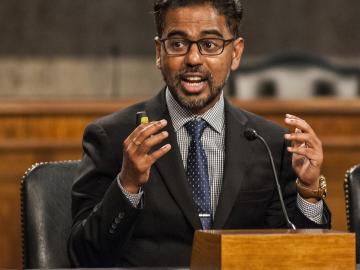
In summer 2023, ORNL's Prasanna Balaprakash was invited to speak at a roundtable discussion focused on the importance of academic artificial intelligence research and development hosted by the White House Office of Science and Technology Policy and the U.S. National Science Foundation.
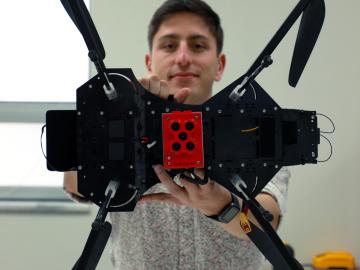
Jack Orebaugh, a forensic anthropology major at the University of Tennessee, Knoxville, has a big heart for families with missing loved ones. When someone disappears in an area of dense vegetation, search and recovery efforts can be difficult, especially when a missing person’s last location is unknown. Recognizing the agony of not knowing what happened to a family or friend, Orebaugh decided to use his internship at the Department of Energy’s Oak Ridge National Laboratory to find better ways to search for lost and deceased people using cameras and drones.
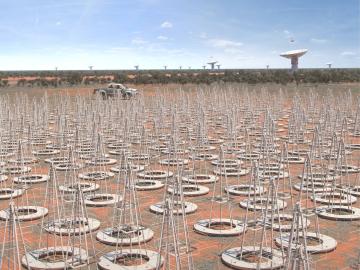
For nearly three decades, scientists and engineers across the globe have worked on the Square Kilometre Array (SKA), a project focused on designing and building the world’s largest radio telescope. Although the SKA will collect enormous amounts of precise astronomical data in record time, scientific breakthroughs will only be possible with systems able to efficiently process that data.
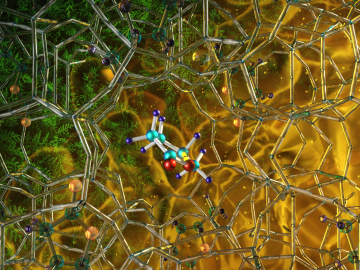
Illustration of the optimized zeolite catalyst, or NbAlS-1, which enables a highly efficient chemical reaction to create butene, a renewable source of energy, without expending high amounts of energy for the conversion. Credit: Jill Hemman, Oak Ridge National Laboratory/U.S. Dept. of Energy
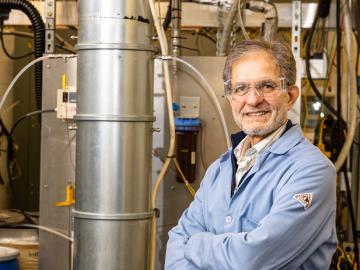
While Tsouris’ water research is diverse in scope, its fundamentals are based on basic science principles that remain largely unchanged, particularly in a mature field like chemical engineering.
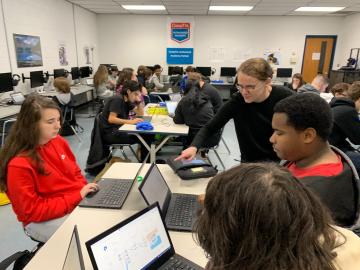
ORNL computer scientist Catherine Schuman returned to her alma mater, Harriman High School, to lead Hour of Code activities and talk to students about her job as a researcher.
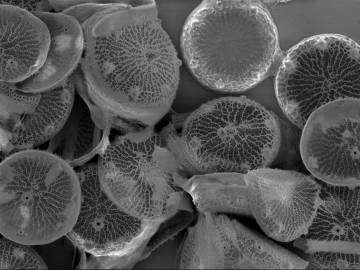
Students often participate in internships and receive formal training in their chosen career fields during college, but some pursue professional development opportunities even earlier.


